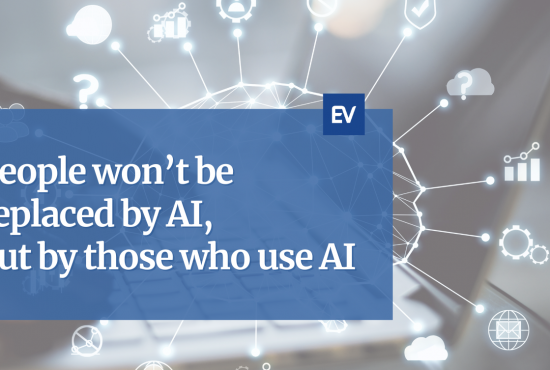How Unilever is getting ready for the future of work
Unilever's Future of Work program, introduced in 2016, aims to accelerate change and prepare its workforce for a digitalized future. However, obstacles remain to fully implementing the program. Unilever must adapt and adapt to the rapid pace of change, while considering local context in its workforce transition.
In this case study, William Kerr - Harvard Business School professor and faculty co-chair of the Managing the Future of Work Project and Patrick Hull - Unilever's vice president of Global Learning and Future of Work will discuss this topic together.
Company profile
The British multinational CPG firm Unilever was established on September 2, 1929, as a result of the union of Dutch Margarine Unie and British soap manufacturer Lever Brothers. The company's present headquarters are in London. Approximately 149,000 people work directly with Unilever as part of its workforce. But Unilever also has an additional 3–5 million people who work for different companies as part of its expanded workforce.
Unilever have about 400 brands, its products include baby food, beauty products, bottled water, breakfast cereals, cleaning agents, condiments, energy drinks, healthcare and hygiene products, ice cream, instant coffee, pet food, pharmaceuticals, soft drinks, tea, and toothpaste. It is the largest soap manufacturer in the world, and its goods are sold in more than 190 nations.
What are the primary factors now affecting FMCG?
According to Professor William Kerr, there are 3 main forces that are putting pressure on the FMCG sector: the technology forces, the demographic forces, and the gig workplace forces.
Technology
There are numerous ways in which interactions between customers and retailers, last-mile delivery, and potential future package delivery by drones will resonate up the supply chain to Unilever and its suppliers. A metric is people are now requesting a faster pace from the package delivery business. When technological progress results in lifestyle change and consumers no longer go shopping directly. Instead, they do it online and request that their product be delivered as soon as possible. At this point, Unilever must adopt a new way of thinking.
Demographic
The role of aging populations and demographic change in the workplace, which is quite different from the workplace of the 20th century, where many of the large companies of today kind of got their grounding, is the second force, which is broader but equally impactful and even more predictable for the future. One of the first observations it makes is that a third of the workforce in the UK is currently over 50. This is true for the majority of modern economies, as well as for older populations in East Asia and other regions. There are going to be workforces in the workplace that span many more generations.
Gig workplace
The third one - an outcome of technology and demographics coming together is the gig workplace. The case seeks to explain some of the approaches they're taking to finding people jobs that aren't the typical full-time positions that most firms were founded on. The technology that enables schedule and involve people in gig employment activates the gig workplace. The ability to recruit individuals who are unemployed or on the verge of finding jobs and persuade them to come work on projects is a very useful labor supply to these organizations, especially considering the low unemployment rates, elderly demographics, and other factors.
Unilever’s Future of Work plans
Nowadays, any startup and small firm can advertise and successfully sell goods to customers online. Making Unilever lose its advantage in terms of reaching out to customers despite the effort of building strong relationships with customers through great store self-positioning since. Unilever then developed its Future of Work plan with 3 main pillars.
“Our three pillars are: change the way we change, ignite lifelong learning, and redefining the Unilever system of work.” - Patrick Hull says.
-
Change the way we change: Change is continuous in an organization, not just sudden dramatic shifts. To make sustainable living commonplace, it's essential to engage in open, proactive dialogue with employees about the change affecting the organization. This involves preparing them well in advance of any impact and ensuring they are prepared for the change. The traditional consultative approach and management's reluctance to act quickly are outdated.
-
Ignite lifelong learning: Engaging in lifelong learning involves equipping people with the necessary skills for success, focusing on the future and guiding their attention.
-
Redefining the Unilever system of work: The organization aims to embrace accessing talent rather than owning it, focusing on a future fit for gig workers and other individuals. By redefining working models, the organization can find a flex in the middle that helps people transition from traditional 40-hour, 40-week, 40-year employment patterns to a more flexible, diversified life cycle.
How Unilever helps workers embraces technology changes
“One of the things we know is, the way not to motivate people to learn new skills is to tell them, ‘You better re-skill or the robots are going to take your job away’.” says Patrick. “So, we've taken the view that if we can help people to discover their purpose, what makes them unique, how do they approach work in their own way, and then start from that point and say, "Okay, when you are at your best, you are doing these things. How do we make sure that you are developing the skills in line with that, that are going to keep your future fit in an environment that is changing around you in terms of the nature of your job and how you work?"
As a result, people with a positive purpose feel more agency, motivation, and a commitment to learning new skills. Research with academic institutions that partnered with Unilever shows that starting people with purpose and creating future fit plans leads to 25% increased engagement, extra mile going, and 22% increased productivity. This positive motivation is a significant benefit.
Unilever has introduced U-Work, a flexible alternative to the gig economy, offering gig workers and freelancers the opportunity to work on projects without a job title. U-Workers are 100% Unilever employees, providing a guaranteed retainer, social care, pension benefits, healthcare benefits, and a learning stipend. They can work on projects, set up their own businesses, care for their families, or retire. This approach is crucial in today's fast-paced work environment, as automation and digitization continue to impact the desire for more flexibility in work arrangements.
The Future of Work framework, co-created with the European Works Council, aims to address digitization and automation's impact on the manufacturing environment. It highlights the correlation between skills of manufacturing workers and lab assistants in R&D labs. This framework encourages people to re-skill from the manufacturing environment into R&D labs, creating a more sustainable future. By identifying their interests and skills, individuals can develop the necessary skills for a more sustainable future.
Source: hbswk.hbs.edu








